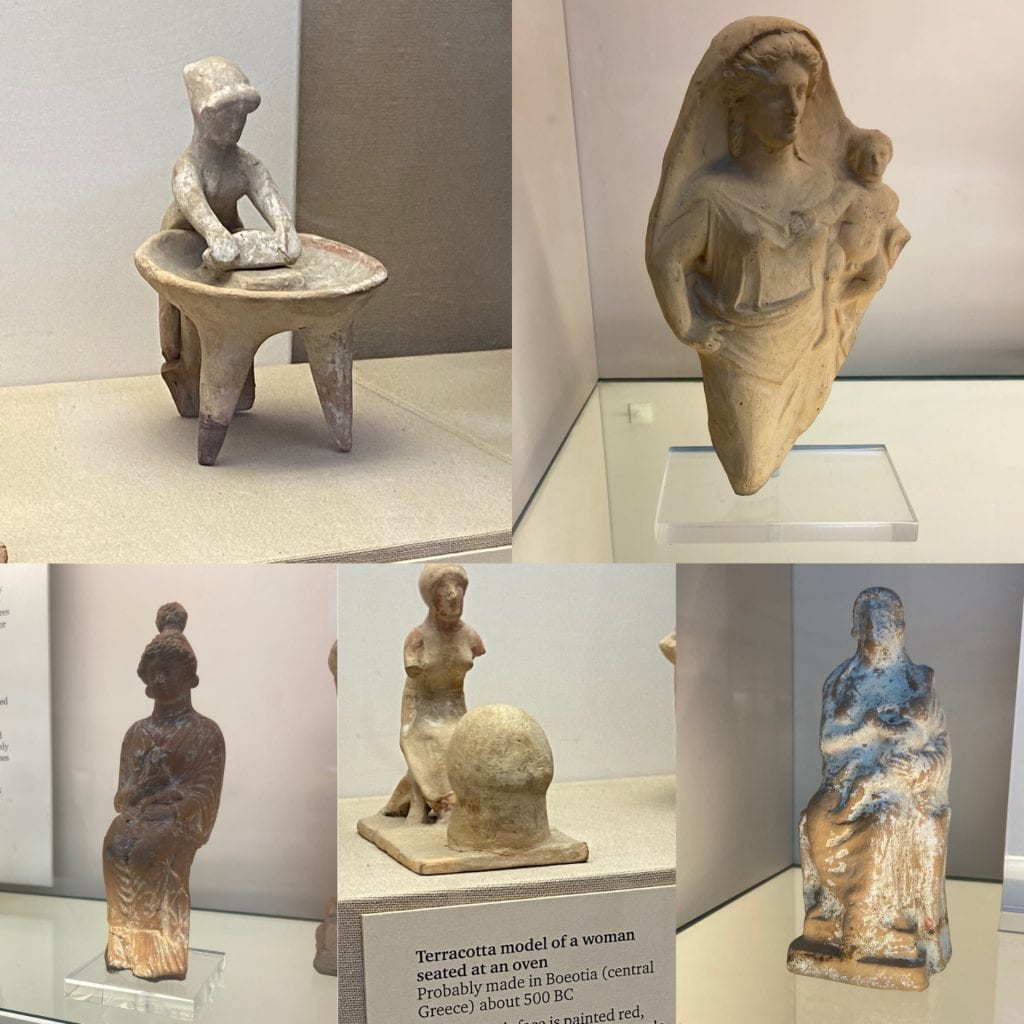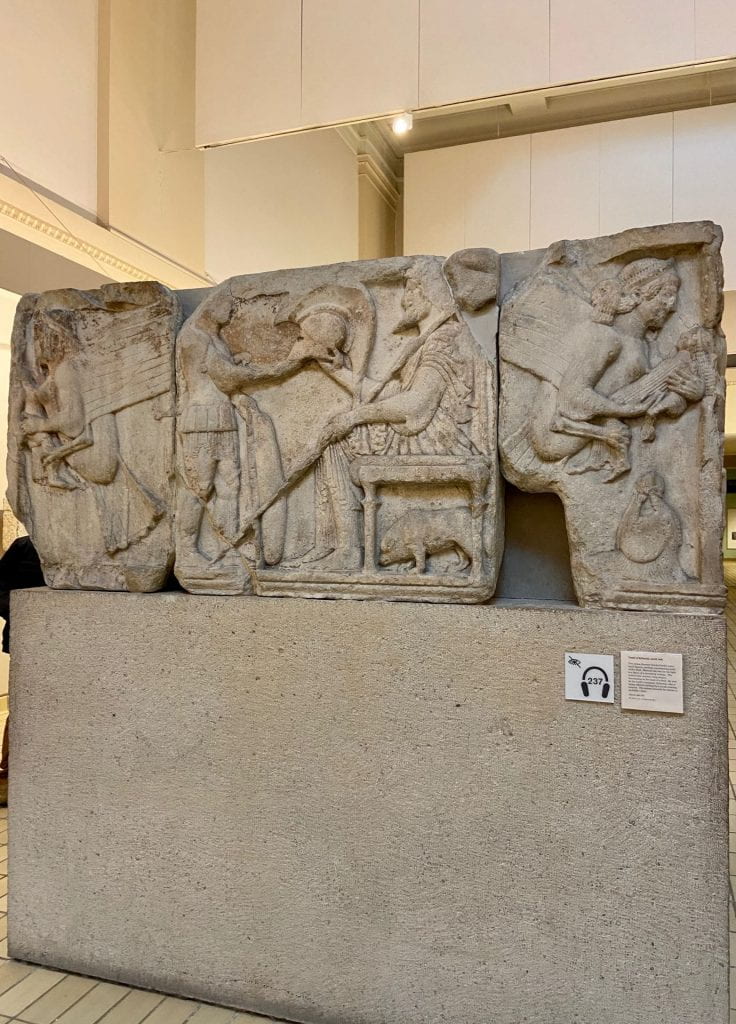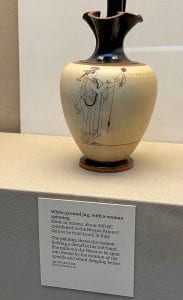Ancient Greek Women in a New Spotlight
Giovanna Grizotte
Growing up, I remember textbooks only highlighted men as active participants of war and the roles of women were rarely mentioned. Whenever women were mentioned, it was usually for nurturing their families and waiting at home for their husbands. Upon entering college, the Odyssey was the first Greek epic poem I ever read and once again, women were portrayed as emotional and fragile, whereas the men were viewed as strong and warrior-like.
This past week when I visited the British Museum, most of the artifacts depicted women in domestic roles, whether it be taking care of their children, cooking, or holding animals. On the other hand, the men were represented victoriously and many times… unclothed. I couldn’t help but notice that men were mostly shown fighting or enjoying life at symposiums. These artifacts and pieces of literature like the Odyssey revealed to me how the ancient Greeks viewed gender and war.

The artifact below demonstrated two soldiers of great size in the center, while there was a mourning woman in the corner. At first, I didn’t even notice the weeping woman on the bottom right until I read the label. I had to put myself in the shoes of an ancient Greek and only then did I realize it would have been appropriate for the Greek women to mourn losses caused by war. Although the weeping woman is the smallest figure in the artifact, some, including myself, could see her as the wisest one of all since she sees the overall picture of war and the ramifications it causes.

A significant Greek woman who saw the negative outcomes of war was Lysistrata. In the play Lysistrata, she gathered all the neighboring Greek women and proposed a plan for the women to go on a sex-strike in order for their husbands to stop fighting in the war. An integral part of the play was when Lysistrata occupied the Acropolis to control the treasury. While the Magistrate doubted the power of women in government, Lysistrata told him to hold his tongue while the women “show the way to recover the nation” (38). To prove her point, Lysistrata compared domestic roles, such as weaving yarn to political work to illustrate that women are capable of solving complicated war issues. After reading Lysistrata, a lot of pieces that I would’ve normally passed by in the museum stood out to me, one being this jug with a woman spinning.

Viewing this artifact could have led me to believe the narrative that has been told throughout history in which women are only responsible for managing households, but it didn’t. Instead, I thought of the Greek women from Lysistrata who used their expertise of their household work and connected it to their participation in democracy. These women utilized the stereotypes made against them to establish themselves worthy of having equal opportunity in the male dominated government. Although, it is important to note that ancient Greeks would have viewed Lysistrata differently than how modern audiences would. While we see her as a powerful figure, her character would have been laughed at because she represented an ‘impossibility’ during that era. (Glad to say things have changed for the better.)
Despite the stigma that women are not as significant in war roles and incited more chaos than help, author Pierre Ducrey counter-argued this. In his “War and the Feminine in Ancient Greece,” he said that women played a role in warfare, oftentimes helping their fellow male counterparts. In one of his examples, he expresses that after a surprise invasion from the Thebans, women from the town of Plataea “thr[ew] stones and tiles onto the assailants” (184) to protect their city. It was surprising, but also exhilarating to read a new narrative in which women played integral roles in ancient Greece.
I had previously only been taught that World War I was the monumental moment where women took over the workforce, but after reading Ducrey, it is now evident to me that women have had these roles for thousands of years. It is crazy to think that in all my years of schooling, I am only now being exposed to the untold history of women being active participants in war during ancient times.





